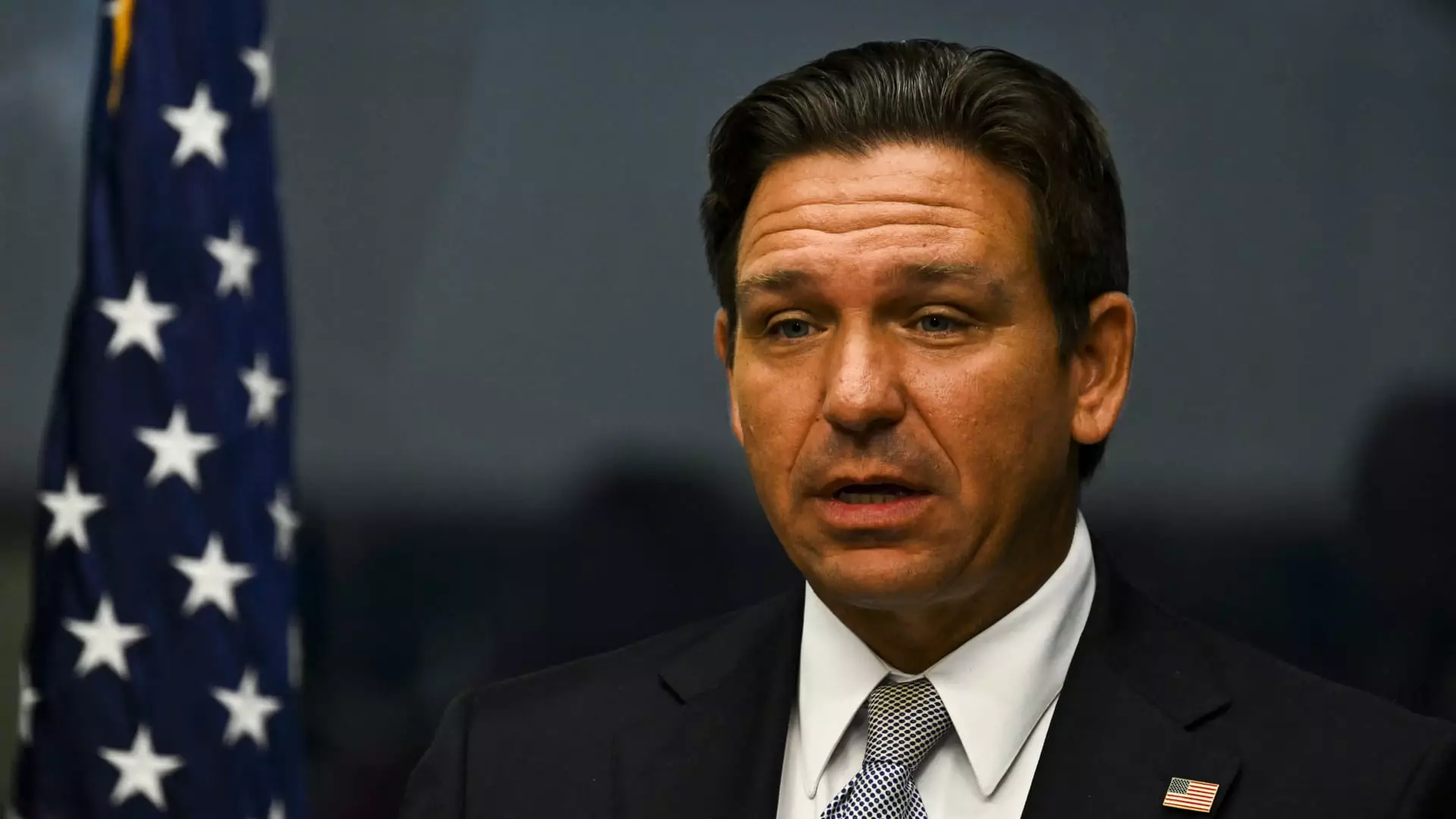In the wake of Hurricane Helene, a storm that wreaked havoc on Florida’s Big Bend and left many communities grappling with damage, an unexpected political narrative has emerged. Florida Governor Ron DeSantis’s reported refusal to engage with Vice President Kamala Harris over storm recovery efforts raises questions about the intersection of governance and partisanship during times of crisis. This behavior, viewed by insiders as an avoidance of what they deemed political overtures, underscores a troubling aspect of contemporary political etiquette, particularly in the context of natural disasters that require swift, coordinated responses from all levels of government.
As Florida reels from the aftermath of a devastating hurricane, effective communication becomes paramount. A representative from DeSantis’s office indicated that the governor was not inclined to answer calls from Harris, arguing that these conversations carried a veneer of political motivations. Such a belief highlights the precarious nature of political relationships, where genuine outreach can be misconstrued as strategic maneuvering. In a situation where affected communities need decisive leadership and collaboration, the unwillingness to engage with federal representatives can hinder recovery efforts and exacerbate existing tensions.
While DeSantis may have chosen to sidestep conversations with Harris, he has maintained communication with Federal Emergency Management Agency (FEMA) Director Deanne Criswell, contrasting key elements of state and federal cooperation. The absence of dialogue with the vice president and potentially with President Biden himself, following claims of missed calls, raises concerns about whether political allegiances are taking precedence over the responsibilities tied to effective disaster management.
In the immediate aftermath of Hurricane Helene, DeSantis was visibly proactive, suggesting that Florida had everything under control, while asserting that federal resources could be better utilized in North Carolina, which also suffered catastrophic flooding. This sentiment diverges sharply from the actions of other governors; for instance, Georgia’s Gov. Brian Kemp praised Biden for his response efforts, effectively demonstrating a willingness to collaborate irrespective of party affiliation. Such contrasting attitudes toward federal assistance may affect how recovery resources are allocated and implemented, potentially leaving some communities vulnerable.
As Florida prepares for the anticipated arrival of Hurricane Milton, which threatens to affect areas already battered by Helene, DeSantis’s approach appears increasingly scrutinized. With resources already deployed to North Carolina following Operation Blue Ridge, the state is now bracing for additional challenges, and DeSantis’s office has yet to indicate any proactive outreach from the Biden administration regarding Hurricane Milton. This situation unveils yet another layer of complexity; even as storms loom large, political dynamics may inhibit fruitful cooperation necessary for effective disaster response.
Community leaders and residents are left watching closely, hoping for the type of united response that has, in other historical cases, proven crucial in mitigating disaster impacts. The potential for worsening conditions raises critical concerns regarding the availability of resources and the efficacy of disaster management strategies when political lines are drawn high.
Furthermore, the narrative surrounding former President Donald Trump’s commentary on the storm encapsulates a troubling trend where political figures leverage disaster situations for partisan gain. Trump’s assertions regarding Harris’s actions during the hurricane recovery process—despite lacking factual basis—serve to polarize discussions surrounding relief efforts. This technique of framing natural disasters through a partisan lens risks undermining public trust in governmental responses and further complicating collaboration between state and federal officials.
The juxtaposition of Trump’s politicized rhetoric against the backdrop of actual recovery efforts in Georgia and South Carolina—often framed in terms of bipartisan gratitude—leaves a notable absence in Florida’s political discourse. Such disparities highlight the importance of unity in disaster management across political affiliations, particularly when the stakes are as high as the well-being of citizens during a crisis.
As Florida faces the dual challenge of recovering from Hurricane Helene and bracing for Hurricane Milton, the evident chasm between cooperation and political maneuvering should prompt both parties to reflect on their priorities. The complexity of disaster management necessitates a departure from partisanship to ensure that prompt and effective assistance reaches those who need it most. In determining the future effectiveness of disaster response in Florida and beyond, the commitment to collaborative leadership must prevail over political division, emphasizing the paramount importance of community welfare during testing times.

Leave a Reply